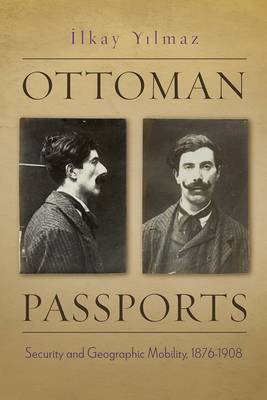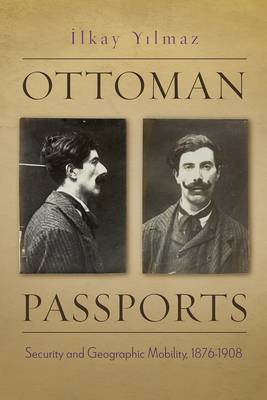
Bedankt voor het vertrouwen het afgelopen jaar! Om jou te bedanken bieden we GRATIS verzending (in België) aan op alles gedurende de hele maand januari.
- Afhalen na 1 uur in een winkel met voorraad
- In januari gratis thuislevering in België
- Ruim aanbod met 7 miljoen producten
Bedankt voor het vertrouwen het afgelopen jaar! Om jou te bedanken bieden we GRATIS verzending (in België) aan op alles gedurende de hele maand januari.
- Afhalen na 1 uur in een winkel met voorraad
- In januari gratis thuislevering in België
- Ruim aanbod met 7 miljoen producten
Zoeken
€ 144,45
+ 288 punten
Uitvoering
Omschrijving
In Ottoman Passports, Ilkay Yilmaz reconsiders the history of two political issues, the Armenian and Macedonian questions, approaching both through the lens of mobility restrictions during the late Ottoman Empire from 1876 to 1908. Yilmaz investigates how Ottoman security perceptions and travel regulations were directly linked to transnational security regimes battling against anarchism. The Hamidian government targeted "internal threats" to the regime with security policies that created new categories of suspects benefiting from the concepts of vagrant, conspirator, and anarchist. Yilmaz explores how mobility restrictions and the use of passports became critical to targeting groups including Armenians, Bulgarians, seasonal and foreign workers, and revolutionaries. Taking up these new policies on surveillance, mobility, and control, Ottoman Passports offers a timely look at the origins of contemporary immigration debates and the historical development of discrimination, terrorism, and counterterrorism.
Specificaties
Betrokkenen
- Auteur(s):
- Uitgeverij:
Inhoud
- Aantal bladzijden:
- 352
- Taal:
- Engels
- Reeks:
Eigenschappen
- Productcode (EAN):
- 9780815638186
- Verschijningsdatum:
- 15/10/2023
- Uitvoering:
- Hardcover
- Formaat:
- Genaaid
- Afmetingen:
- 152 mm x 229 mm
- Gewicht:
- 698 g

Alleen bij Standaard Boekhandel
+ 288 punten op je klantenkaart van Standaard Boekhandel
Beoordelingen
We publiceren alleen reviews die voldoen aan de voorwaarden voor reviews. Bekijk onze voorwaarden voor reviews.









